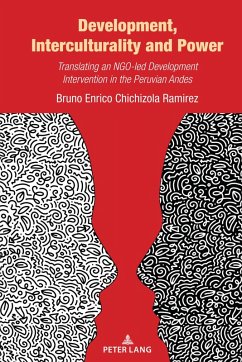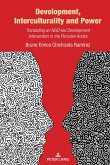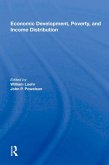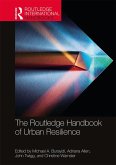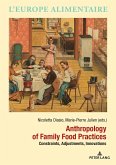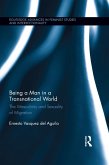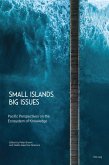Interculturality has been considered as a transversal pillar to deal with the cultural diversity around the world. However, the way in which NGO-led development interventions practice interculturality has received little attention from researchers focused on Peru. This research expands the conversation about how interculturality is practiced within NGO-led development projects using a case in the Andes as a fictional ethnography. The book touches on how silent racism is reproduced within development practice and calls for the re-politicization of interculturality.
It targets three different groups. First, for academics and students focused on exploring the encounter between the Andean communities and the industry of development, and more broadly for those focused on how divergent ways of knowing interact in the context of a development intervention, the author highlights the usefulness of the methodological tool used in this research to explore the overlapping realities converged in such types of interventions.
Second, for development practitioners promoting better ways to facilitate the political process of intercultural practice this book opens up a reflexive exploration of the barriers to unlock the potential of intercultural practices. Specifically, the author draws attention to built-in limits of a structure of development which may be unfitted to facilitate processes with the capacity to attend to the complicated ways target populations see their future.
Third, for policymakers aiming to promote intercultural practices, this research provides insights about the hurdles of such an enterprise. It provides fresh empirical findings to look at how power structures shape intercultural practice.
It targets three different groups. First, for academics and students focused on exploring the encounter between the Andean communities and the industry of development, and more broadly for those focused on how divergent ways of knowing interact in the context of a development intervention, the author highlights the usefulness of the methodological tool used in this research to explore the overlapping realities converged in such types of interventions.
Second, for development practitioners promoting better ways to facilitate the political process of intercultural practice this book opens up a reflexive exploration of the barriers to unlock the potential of intercultural practices. Specifically, the author draws attention to built-in limits of a structure of development which may be unfitted to facilitate processes with the capacity to attend to the complicated ways target populations see their future.
Third, for policymakers aiming to promote intercultural practices, this research provides insights about the hurdles of such an enterprise. It provides fresh empirical findings to look at how power structures shape intercultural practice.
Dieser Download kann aus rechtlichen Gründen nur mit Rechnungsadresse in A, D ausgeliefert werden.

